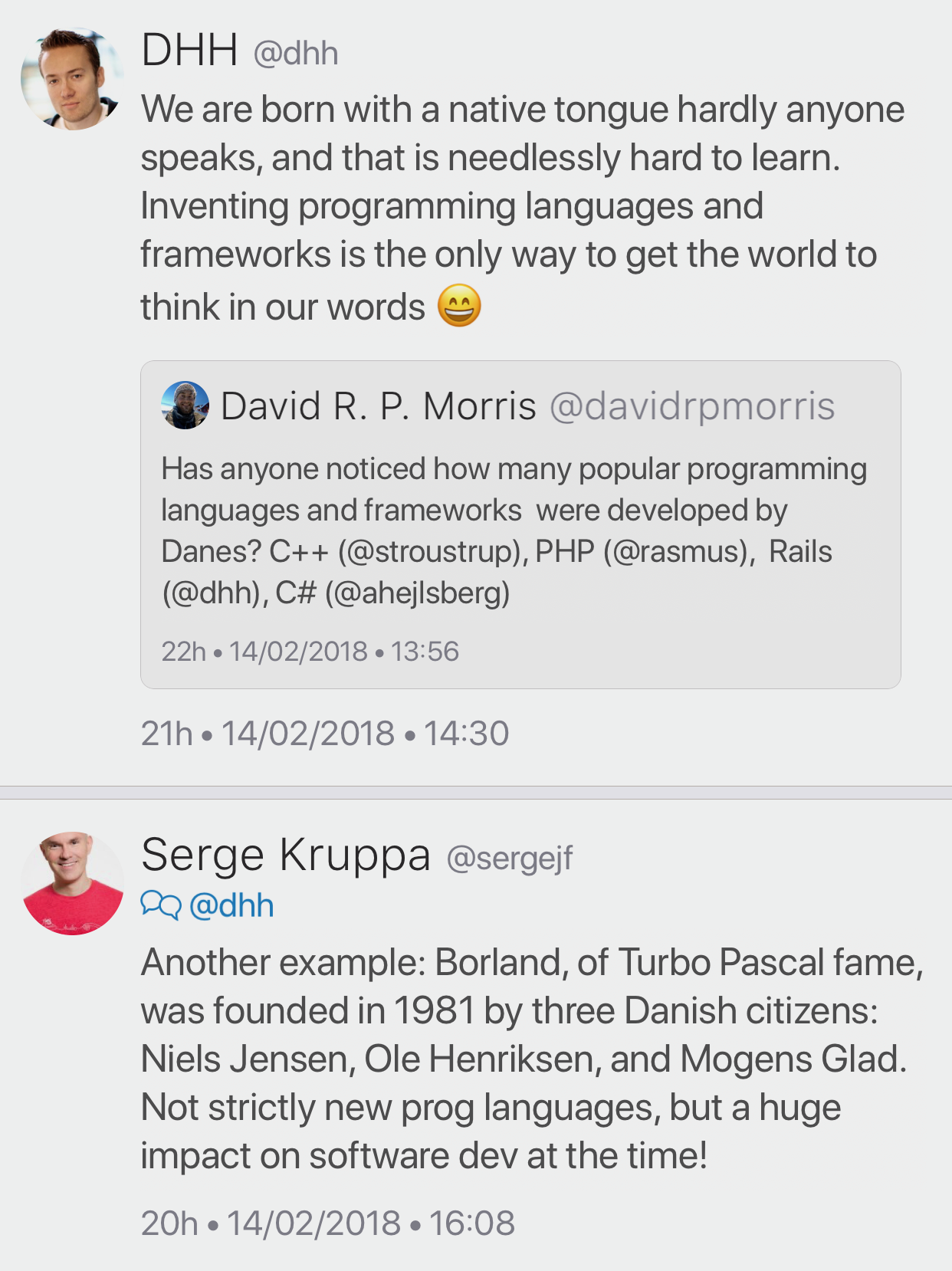Meeting 1 March 2018
C++ Developer survey
Prof. Liskov receives 2018 Computer Pioneer Award
Prof. Barbara Liskov Selected to Receive the 2018 IEEE Computer Society’s Computer Pioneer Award. The award is given for significant contributions to early concepts and developments in the electronic computer field, which have clearly advanced the state-of-the-art in computing. Liskov is being recognized “for pioneering data abstraction, polymorphism, and support for fault tolerance and distributed computing in the programming languages CLU and Argus."
P0581R1: Standard Library Modules
- Leave “C headers” alone
- Present modules as logical sets of functionalities
- Robust support for C++ in diverse environments
- Every standard facility is provided by exactly one module
As a first approximation, we suggest the following:
std.fundamentalstd.corestd.mathstd.iostd.concurrencystd.osstd
P0942R0: Introducing a <smart_ptr> header
P0122R6: span: bounds-safe views for sequences of objects
The span type is an abstraction that provides a view over a contiguous sequence of objects, the storage of which is owned by some other object.
Requires C++11. A reference implementation is available as part of Microsoft GSL.
P0201R3: polymorphic_value: a polymorphic value-type for C++
Add a class template, polymorphic_value<T>, to the standard library to support polymorphic objects with value-like semantics. Copies are deep and const is propagated to the owned object.
See also:
value_ptr — The Missing C++ Smart-pointer
p0907r0: Signed Integers are Two’s Complement
P0645R1: Text Formatting
This paper proposes a new text formatting library that can be used as a safe and extensible alternative to the printf family of functions. It is intended to complement the existing C++ I/O streams library and reuse some of its infrastructure such as overloaded insertion operators for user-defined types.
Example:
1string message = fmt::format("The answer is {}.", 42);
A full implementation of this proposal is available at https://github.com/fmtlib/fmt.
P0671R1: Parametric functions
Please don’t assume that you know what this paper is about. <…> I am almost certain: you haven’t seen this before.
P0671R1: Allow naming arguments in regular index-based, C++-style function calls, but ignoring them from the standard’s point of view (but not necessarily so from the implementers')
1double Gauss(double x, double mean = 0.,
2 double width = 1., double height = 1.);
3Gauss(0.1, mean := 0., width := 2.); // same as below
4Gauss(0.1, 0., 2.);
p0745r0: Concepts in-place syntax, by Herb Sutter
Concepts TS and P0694R0:
1void Sort(Sortable& s);
Proposed:
1void Sort(Sortable{}& s);
p0873r1: A plea for a consistent, terse and intuitive declaration syntax
- Allow
autoas a parameter in functions - Consistent use of
autoandtypename - Allow multiple constraints for each type
- Allow use of concepts consistently and uniformly
P0915R0: Concept-constrained auto, by Vittorio Romeo and John Lakos
1template <typename T>
2void foo(std::vector<T>& v)
3{
4 auto<RandomAccessIterator> it{std::begin(v)};
5 // ...
6}
p0956r0: Answers to concept syntax suggestions, by Bjarne Stroustrup
Batteries not included: what should go in the C++ standard library? (by Guy Davidson)
P0267R7: A Proposal to Add 2D Graphics Rendering and Display to C++
“A graphics library shouldn’t be part of the standard library. The standard library is too big already, and this will make it so much bigger. It’s just not appropriate. The library should only contain small types.”
A cake for your cherry: what should go in the C++ standard library? (by Corentin Jabot)
I do think this is a path that should not be pursued and that doing so would be, at best, a waste of time.
The question then becomes : can the committee spare the time to work on a 2D graphics library and is that a priority ?
In its current form, which is limited to drawing shapes, the proposal is about 150 pages long. It’s one of the biggest proposal submitted for the next meeting.
What Should Go Into the C++ Standard Library (by Titus Winters)
C++ cannot afford to be all things to all people <…> why are we thinking that a Graphics library to make it easy to visualize things for novices is a good fit?
So, what should go in the standard library? Fundamentals.
Graphics won’t make C++ a teaching language - learning to be an algorithmic thinker should be done in a language that has fewer sharp edges. C++ won’t make Graphics easy, and tying any sort of Graphics API to the legacy constraints of C++ won’t make for a great API in that space.
There needs to be some mechanism to readily distribute libraries and dependencies in the C++ community.
Blaze C++14 maths library
- BitBucket (BSD)
Blaze is an open-source, high-performance C++ math library for dense and sparse arithmetic. With its state-of-the-art Smart Expression Template implementation Blaze combines the elegance and ease of use of a domain-specific language with HPC-grade performance, making it one of the most intuitive and fastest C++ math libraries available.
Videos by Qt Studios
C++ Dublin Users Group
DHH on Danes
